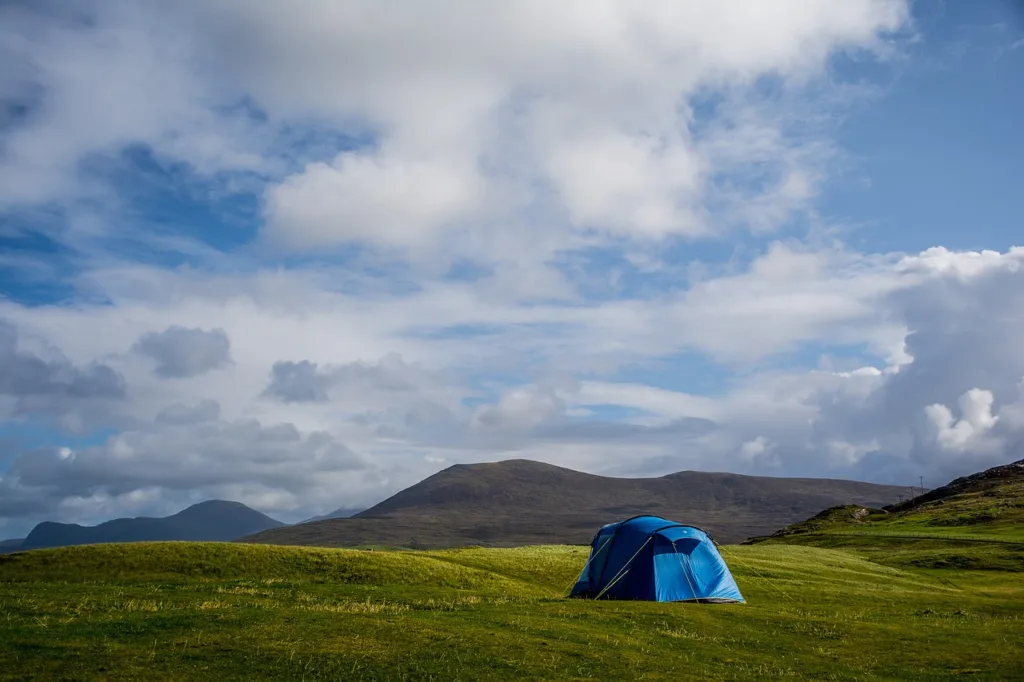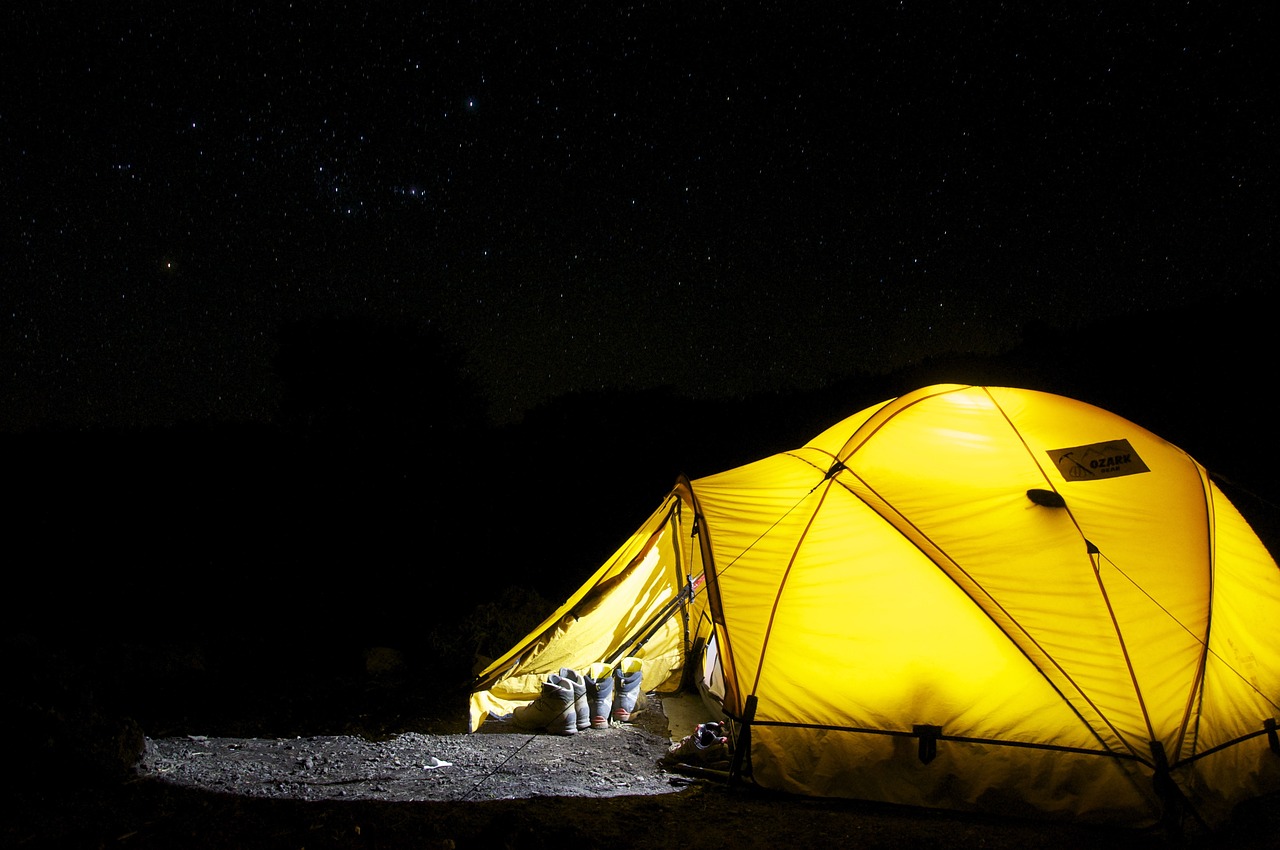In a world full of fast-paced lifestyles and constant digital connectivity, there’s something incredibly refreshing about escaping to the great outdoors and embracing the simplicity of camping. Whether you’re an experienced adventurer or a first-time camper, immersing yourself in nature can be an exhilarating and rejuvenating experience. In this comprehensive guide to camping, we’ll take you through everything you need to know to have the perfect camping trip.
Choose the Right Campsite:
Selecting the right campsite is crucial for a successful camping experience. Research different locations based on your preferences, such as proximity to home, scenery, and available activities. Consider factors such as accessibility, amenities, and the availability of water sources. Some campsites offer hiking trails, fishing opportunities, or breathtaking views. Choosing a campsite that aligns with your desired experience will ensure you start your trip off on the right foot.
Plan and Pack Accordingly:
Creating a checklist of essential camping gear is essential to ensure you’re well-prepared for your adventure. Start with the basics: a sturdy tent, sleeping bags, and sleeping pads. Additionally, pack cooking equipment such as a portable stove, utensils, and a cooler for perishable food items. Plan your meals and bring non-perishable food items, focusing on simplicity and ease of preparation. Don’t forget to pack enough water for drinking and cooking. Other important items include camping chairs, flashlights or headlamps, insect repellent, sunscreen, and a first aid kit. Checking the weather forecast before packing will help you prepare appropriate clothing and gear for different conditions.
Set Up Your Camp:
Once you arrive at your chosen campsite, it’s time to set up your camp. Find a suitable spot for your tent, preferably on level ground and away from potential hazards like loose rocks or branches. Follow the instructions for assembling your tent and make sure it is securely anchored. Organize your camping gear, creating dedicated areas for cooking utensils, food storage, and personal items. Familiarize yourself with the campsite rules, including any restrictions on campfires or waste disposal.
Safety First:
Safety should always be a priority when camping. Before your trip, research potential hazards in the camping area, such as poisonous plants, wildlife encounters, or extreme weather conditions. Learn basic first aid procedures and ensure you have a fully stocked first aid kit. It’s also essential to inform someone about your camping plans, including the location, duration, and expected return time. This way, someone knows where you are in case of an emergency.
Campfire Tips:
A campfire is often the centerpiece of a camping experience, providing warmth, light, and a gathering place for storytelling and relaxation. However, it’s crucial to follow safety guidelines for a responsible campfire experience. Choose a designated fire pit or create a ring of rocks in an open area, away from tents and other flammable materials. Collect firewood from the surrounding area or bring your own, but never cut live trees. Start the fire with small kindling and gradually add larger pieces of wood. Never leave the fire unattended, and fully extinguish it before leaving the campsite or going to sleep by pouring water and stirring the ashes.
Explore Nature:
Camping offers a unique opportunity to immerse yourself in the beauty of nature. Take advantage of hiking trails, bike paths, or water activities in the vicinity. Research local attractions, natural landmarks, or scenic spots nearby. Capture breathtaking photographs, listen to the sounds of the wilderness, and observe the local flora and fauna. Remember to respect the environment by following Leave No Trace principles, leaving nature as you found it.
Disconnect and Reconnect:
One of the greatest joys of camping is disconnecting from technology and reconnecting with yourself and loved ones. Embrace the absence of Wi-Fi and relish in genuine face-to-face conversations, board games, storytelling, and stargazing. Use this time to unwind, rejuvenate, and appreciate the simpler pleasures of life. Engage in activities that foster connection and create lasting memories.
Leave No Trace Principles:
When camping, it’s essential to minimize your impact on the environment and leave nature untouched for future generations to enjoy. Follow the Leave No Trace principles, which include disposing of waste properly by using designated trash bins or carrying out your garbage. Respect wildlife by observing from a distance, not feeding them, and storing food securely. Stay on designated trails to avoid damaging vegetation and ecosystems. Minimize campfire impact by using established fire rings and only burning small, dry wood.
Weather Preparedness:
Checking the weather forecast for your camping location is crucial for preparedness. Pack appropriate clothing and gear to ensure you’re ready for different weather conditions. Bring rain gear, extra layers, and be aware of potential hazards like storms or extreme heat. Stay informed about any weather warnings or advisories issued for the area. It’s important to remain flexible with your plans and make adjustments if necessary to ensure your safety and comfort.
Meal Planning and Cooking:
Proper meal planning and cooking can significantly enhance your camping experience. Plan your meals in advance, considering the duration of your trip and the availability of cooking facilities. Opt for non-perishable items that are easy to prepare and pack, such as canned goods, granola bars, or dehydrated meals. Don’t forget to bring essential cooking equipment, including pots, pans, cooking utensils, and a camping stove. If you prefer the traditional campfire cooking experience, invest in a sturdy grill grate or tripod for suspending cookware over the fire.
Water and Hydration:
Staying hydrated is vital during your camping adventure, especially when engaging in outdoor activities or during hot weather. Depending on the location, water sources may be limited or unavailable. Ensure you have enough drinking water for the duration of your trip or have a reliable method to purify water from natural sources. Portable water filters, purification tablets, or boiling are common methods for treating water in the wilderness. Stay mindful of your hydration needs and drink water regularly throughout the day.

Learn Basic Outdoor Skills:
Familiarizing yourself with basic outdoor skills will not only enhance your camping experience but also ensure your safety and self-sufficiency in the wilderness. Learn how to navigate with a map and compass or by using GPS devices and smartphone applications. Understanding basic navigation techniques will help you explore the surroundings confidently. Additionally, learning to start a fire without matches, tie essential knots, and administer basic first aid can be invaluable skills in camping situations.
Respect Quiet Hours:
Many campsites have designated quiet hours to ensure campers can enjoy a peaceful environment. Respect these hours by keeping noise to a minimum and being considerate of fellow campers. Avoid loud conversations, music, or excessive noise that may disrupt the tranquility of the camping area. It’s an opportunity to appreciate the sounds of nature and ensure everyone has a restful experience.
Camping Etiquette:
Practicing good camping etiquette creates a harmonious atmosphere in the campground and promotes positive interactions with other campers. Respect other campers’ privacy and personal space by keeping a reasonable distance between campsites. Avoid walking through occupied campsites and instead use designated paths. Keep pets under control and ensure they are not causing disturbances to others. Always clean up after your pets to maintain a clean and enjoyable environment for all. Use low-level lighting at night, such as headlamps or lanterns, to minimize disturbance to others while still providing necessary illumination.
Leave the Campsite Better Than You Found It:
Before leaving your campsite, take a moment to clean up and remove any trash or litter. Ensure the area is left in a better condition than when you arrived. Pack out all your garbage and dispose of it properly in designated containers. If you notice any trash left behind by previous campers, consider picking it up as well. By practicing this principle, you contribute to the preservation of nature and leave the campsite ready for the next adventurers to enjoy.
By incorporating these into your camping experience, you’ll be equipped with the knowledge and preparation needed for a memorable and enjoyable trip. Remember to plan accordingly, prioritize safety, respect the environment, and embrace the beauty of nature. Happy camping!





